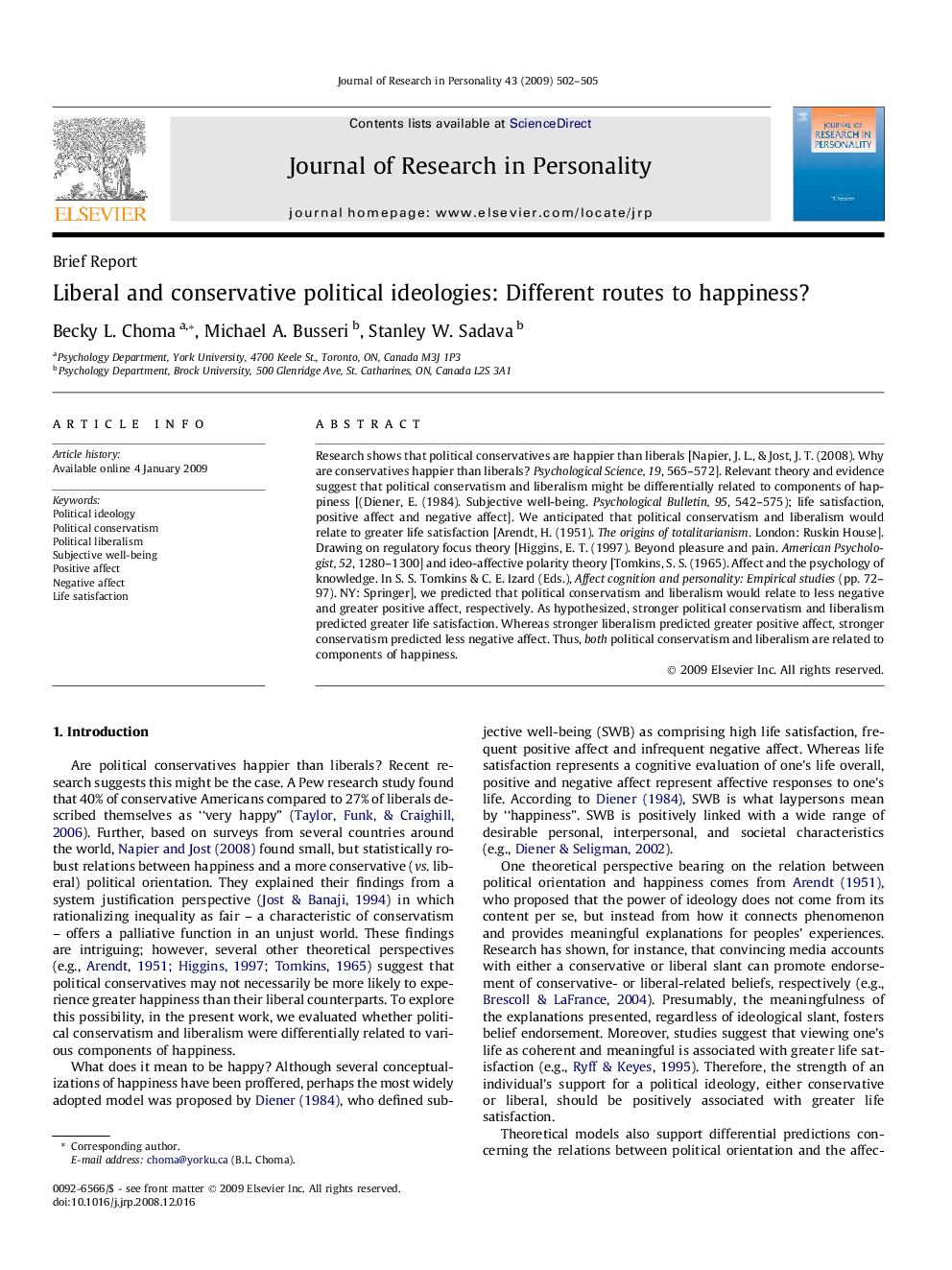| Article ID | Journal | Published Year | Pages | File Type |
|---|---|---|---|---|
| 951774 | Journal of Research in Personality | 2009 | 4 Pages |
Research shows that political conservatives are happier than liberals [Napier, J. L., & Jost, J. T. (2008). Why are conservatives happier than liberals? Psychological Science, 19, 565–572]. Relevant theory and evidence suggest that political conservatism and liberalism might be differentially related to components of happiness [(Diener, E. (1984). Subjective well-being. Psychological Bulletin, 95, 542–575); life satisfaction, positive affect and negative affect]. We anticipated that political conservatism and liberalism would relate to greater life satisfaction [Arendt, H. (1951). The origins of totalitarianism. London: Ruskin House]. Drawing on regulatory focus theory [Higgins, E. T. (1997). Beyond pleasure and pain. American Psychologist, 52, 1280–1300] and ideo-affective polarity theory [Tomkins, S. S. (1965). Affect and the psychology of knowledge. In S. S. Tomkins & C. E. Izard (Eds.), Affect cognition and personality: Empirical studies (pp. 72–97). NY: Springer], we predicted that political conservatism and liberalism would relate to less negative and greater positive affect, respectively. As hypothesized, stronger political conservatism and liberalism predicted greater life satisfaction. Whereas stronger liberalism predicted greater positive affect, stronger conservatism predicted less negative affect. Thus, both political conservatism and liberalism are related to components of happiness.
